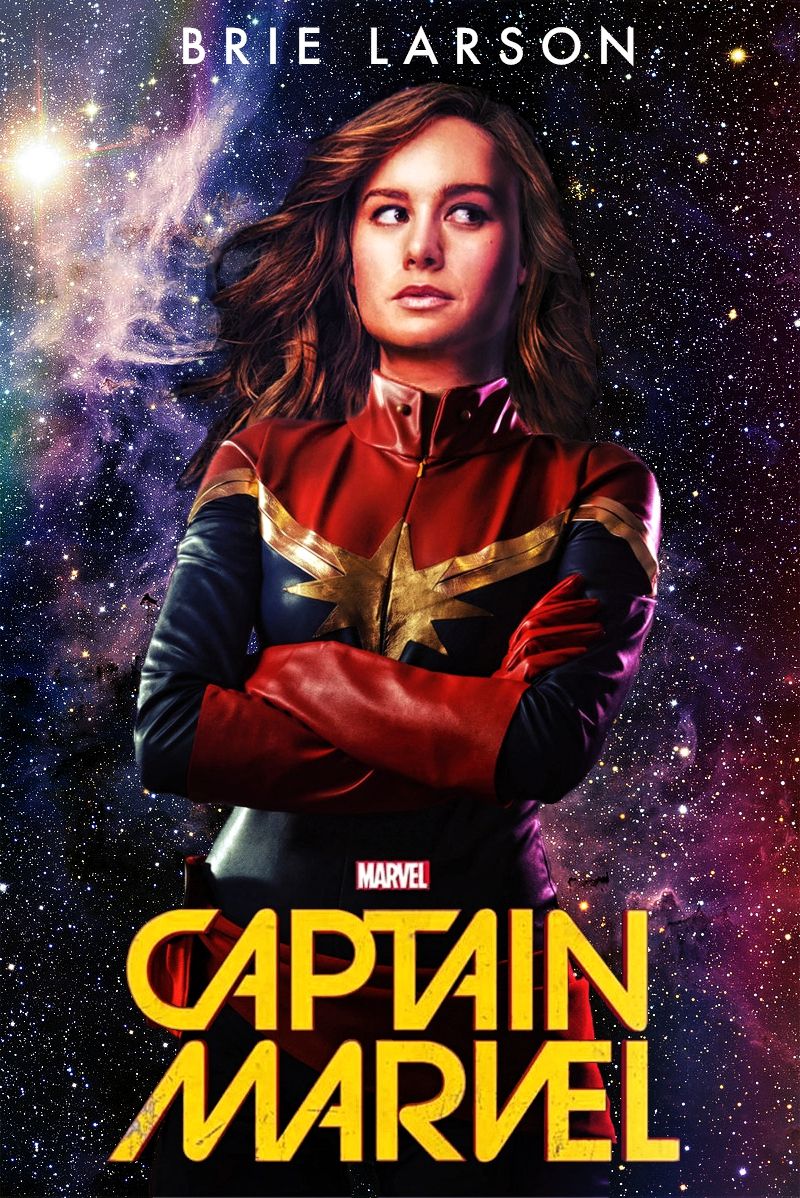At The Movies - Captain Marvel A Marvel To Behold
By Jordan Bosch
If you’re lucky enough to have avoided the “discourse” surrounding Captain Marvel ahead of its release, I envy you.
Because of it being a female-led superhero movie and star Brie Larson’s outspoken criticism of institutional sexism in Hollywood and particularly the lack of women and minority film critics (both genuine problems I find it hard to disagree with), Captain Marvel has incurred the wrath of basement dwellers everywhere -down-voting the movie en masse on Rotten Tomatoes before it was released and even attempting a feeble, though annoying, boycott.
With the movie closing its opening weekend as the highest earning debut of a single-hero Marvel film after Black Panther, it would seem to have already vanquished the organized hate campaign and bad-faith criticism, but those forces are still loud and unyielding. But Captain Marvel, like its title character, doesn’t have to prove itself to them; it stands on its own merits.
Vers (Brie Larson) is a skilled soldier of the alien Kree Empire with enigmatic energy powers, kept in check by her commander and friend Yon-Rogg (Jude Law). However she has limited memory and occasionally envisions what appears to be a past life as Carol Danvers, a human pilot working for an Air Force scientist (Annette Benning). Engaged in a war with the shapeshifting Skrulls, she and her adversaries ultimately wind up on Earth in 1995 Los Angeles, where she teams up with S.H.I.E.L.D. agent Nick Fury (Samuel L. Jackson) to stop their invasion and unearth her real past.
Captain Marvel is written and directed by Anna Boden and Ryan Fleck of low-key indie hits Half Nelson and It’s Kind of a Funny Story, and while the budget and scale is certainly alien to them, that humble sensibility does come through in their approach to the characters.
Danvers’ identity crisis is written as a symptom of her goal in the story rather than the primary focus, which affects how she takes revelations in with more confusion and frustrated repression than emotional fulfilment .She has flashes of her childhood and background that greatly impact her, but is careful how she expresses that, owing largely to her Kree training. And even then she shows no particular attachment to Earth itself. It’s a smart and striking way of dealing with an amnesiac character and allows her to remain both distant and relatable to the audience. No Marvel movie superhero has felt less human -in fact she occupies the same larger than life yet palatable space as the very best incarnations of Superman and Wonder Woman; a fascinating character who by design isn’t fully developed yet.
Larson is terrific, knowing just the right notes to hit, and very much understanding how to navigate her characters’ attitude and humour amidst these serious elements.
And Samuel L. Jackson, revelling in his largest role in a Marvel movie, compliments her exceedingly well. This easy comradery between Danvers and Fury is based in a strong mutual respect and a rapport that outshines any of Fury’s previous interactions.
In addition to Law and Benning, the supporting cast features an underutilized Gemma Chan and Ben Mendelsohn refreshingly getting to play a role quite differently than how he’s usually typecast. A few characters from other Marvel movies make appearances, notably Clark Gregg’s Phil Coulson, though a stand-out has to be Lashana Lynch as Danvers’ dedicated best friend Maria, who occupies the films’ emotional centre.
While the story is never wholly unpredictable, it does play around with your expectations, and makes some choices few other Marvel movies have.
Danvers is the first MCU protagonist not to have a love interest for example, and to start her origin story with a ton of uncertainty as to that origin.
Nineties nostalgia and paraphernalia illustrate the film, demonstrating Marvel’s first detour into the reference market. Indeed, commodore computers, Blockbuster Video, a shout-out to Mallrats, and walkmans all serve their purpose well of distracting from the fact that the story is dependant on and more interesting in the context of the greater cinematic universe and connecting dots of continuity, than it is terribly compelling on its own terms.
But it is pretty visually stimulating when it wants to be.
The realm of Danvers’ dreams is evocatively minimalist and her powers in action are nicely impressive, if the action choreography itself is somewhat unfocused.
This movie is also the apex of that de-aging special effect Marvel has been honing for a number of years now, and it’s by far their most successful effort.
Gone are the days of the uncanny valley of Robert Downey Jr. or the unconvincing Michael Douglas or Kurt Russell, 1995 Samuel L. Jackson fits right in. Of course age has never really mattered much for Jackson (can you believe he’s seventy?), but it’s still both tremendous and terrifying how he looks like he came to this movie fresh off of Die Hard 3.
Captain Marvel is aware of its own significance.
Danvers bonds with Maria’s daughter Monica (Akira Akbar), who helps her design her suit, she heavily implies Monica will one day be a hero too, and an important action sequence is underscored by “Just A Girl” by Gwen Stefani. That, in addition to the implications made by the film regarding Danvers’ role in the larger universe speaks to a conscious effort to embrace a feminist identity at the forefront of the pantheon of Marvel superheroes.
Captain Marvel is good and fun and funny and sweet (its’ Stan Lee tribute early on is especially heartfelt), but what it means for this pop culture juggernaut called the MCU is the real reason it’s worth seeing -maybe multiple times just to piss off the man-children.
Follow Jordan on Twitter: https://twitter.com/Jordan_D_Bosch
Letterboxd: https://letterboxd.com/jbosch/

